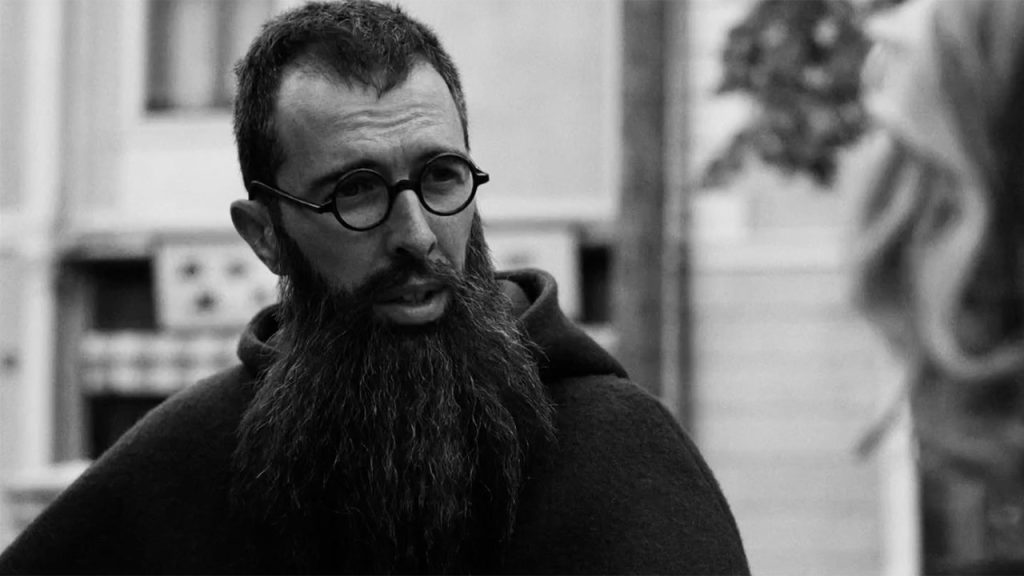Maximilian Kolbe, a Franciscan friar, stands as a beacon of faith and courage in the face of unimaginable adversity. Born Raymund Kolbe in Poland in 1894, his life took a dramatic turn at the tender age of nine when he experienced a vision of the Virgin Mary, offering him two crowns: one of purity, the other of martyrdom. Young Kolbe, with unwavering conviction, chose both, foreshadowing the extraordinary life of sacrifice that lay ahead. His path was further shaped by the religious devotion of his parents and the tragic loss of his father, hanged by Russian forces after World War I. These early experiences laid the groundwork for Kolbe’s unwavering dedication to his faith and his willingness to embrace suffering for the sake of others.
At sixteen, Kolbe entered the Conventual Franciscans, adopting the religious name Maximilian, and later, Maximilian Maria Kolbe. His devotion to the Virgin Mary led him to found the Militia Immaculatae in 1917, an organization dedicated to converting sinners through the intercession of the Blessed Mother. Ordained a priest in 1918, Kolbe embarked on a global mission of evangelization, establishing missions and seminaries in Japan and India, driven by his fervent desire to spread the word of God. His endeavors extended to the realm of media, founding publications and even establishing the first Catholic radio station in Poland, showcasing his innovative approach to reaching wider audiences.
Kolbe’s return to Poland in 1933 coincided with the rise of Adolf Hitler, a harbinger of the dark times that would soon engulf Europe. Despite a diagnosis of tuberculosis, Kolbe’s missionary zeal remained undiminished. He expanded his media network, operating from the monastery he founded, Niepokalanów, a testament to his resilience and unwavering commitment to his faith. This period highlighted Kolbe’s ability to adapt and persevere amidst growing political tensions and personal health challenges, demonstrating the depth of his devotion.
World War II brought with it the invasion of Poland, and Kolbe, along with countless others, faced the brutal reality of Nazi occupation. Arrested and detained, he witnessed the ransacking of Niepokalanów, a stark reminder of the escalating persecution. Despite previously promoting anti-Semitic sentiments through his publications and radio station, Kolbe underwent a profound transformation. He encouraged compassion and empathy, emphasizing the shared humanity of all people, regardless of their faith or background. This evolution in his thinking underscores his capacity for growth and his unwavering belief in the inherent dignity of every human being.
This newfound compassion led Kolbe to shelter over 3,000 displaced people at Niepokalanów, including 1,500 Jews, a courageous act of defiance in the face of Nazi tyranny. His arrest by the Gestapo in 1941 marked the beginning of his final journey. Imprisoned and tortured at Pawiak prison in Warsaw, he was eventually transferred to the notorious Auschwitz concentration camp, where he was given the prisoner number 16670. Even in the depths of this horrific place, Kolbe continued to minister to his fellow prisoners, offering solace and hope in the face of despair. His actions became a beacon of light in the darkness, inspiring others with his unwavering faith and selfless service.
The defining moment of Kolbe’s life came in late July 1941, when a prisoner escaped from Auschwitz. Ten men were chosen at random to be sent to the starvation bunker as punishment. When one of the condemned, Franciszek Gajowniczek, cried out in anguish for his wife and children, Kolbe stepped forward and volunteered to take his place. This extraordinary act of self-sacrifice, born out of profound love and compassion, sealed his fate. Inside the starvation bunker, Kolbe led the other condemned men in prayer, offering comfort and spiritual guidance as they slowly succumbed to starvation and dehydration. After two weeks, Kolbe, still alive, was finally killed by a lethal injection of carbolic acid on August 14, 1941, the eve of the Feast of the Assumption of Mary. His act of selflessness became a powerful symbol of hope and resistance within the confines of Auschwitz. Kolbe’s journey culminated in his canonization as a saint by Pope John Paul II in 1982, solidifying his legacy as a martyr of charity, a testament to his lifelong commitment to love and service.


